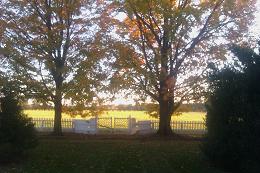- Facebook38
- Total 38
(Jerusalem) Since I last posted, we have met with an Arab member of the Knesset, Ahmad Tibi, in the Knesset building. One of the founders of the settler movement, Israel Harel, showed us around his controversial West Bank settlement of Ofra (within sight of the settler outpost that is being evacuated today). We’ve also talked with Vice Commander Bentzi Gruber, who led a brigade into Gaza in the last Israeli operation there; Tal Becker, chief of the Israeli team in the Annapolis negotiations; and Yossi Klein Halevi, journalist and scholar. Tomorrow, we’re going to Ramallah, where we’ll hear more from the Palestinian leadership.
After experiencing all these personalities and perspectives–and so much pain, pride, sorrow, and fear–I’ll just mention one theme that recurred in at least four of the conversations: Arab moral recognition for Israel. Tal Becker said that Israel needs to acknowledge Palestinian suffering much more than it has, and Palestinians must recognize that Jews were a nation in Israel in ancient times (even if they contest the legitimacy of the modern state).
By the way, I am withholding judgment on whether Palestinians deny the Jews’ historic connection to the region. In 2000, the Palestinian negotiating team told Bill Clinton there was no evidence that Jews had lived in Israel in ancient times, but I am not sure whether that remains their position or how widely it is shared. What I do know is that we have met Israelis who hold at least four views on the topic:
- Palestinian recognition of the Jews’ historical role in Israel (and hence the sincerity of Israelis’ claims to the land) is a precondition for any kind of serious peace negotiation. I told Halevi I understood why he wanted this recognition–as a moral and emotional matter–but I didn’t see what it had to do with his security. He replied that open recognition of the validity of the Jewish position would reduce the danger to Israel in the whole Arab world.
- Palestinian recognition of the historical link should be part of a deal, combined with Israeli recognition of Palestinian sovereignty over their territory. This pair of statements is not a precondition for negotiations but should be part of the outcome. I think this was Tal Becker’s view. [Later: I should partly correct that. I think Becker would like the Israeli side to start acknowledging Palestinian suffering now, because it is the right thing to do. He just doesn’t think that Palestinian acknowledgement of Israeli historicity should be a precondition for negotiation.]
- Palestinians’ views about Israel’s status really aren’t important. A deal is all that’s needed, and a deal should be accepted if it protects Israel’s security. I think Commander Gruber took that position.
- Palestinians do not have a legitimate claim to sovereignty, so recognizing their nationhood certainly should not be traded for Palestinian recognition of the Jewish people’s connection to the land, which is manifest and absolute. I am reading between the lines in thinking that would be Israel Harel’s view.
I am not sure about the strategic implications of these options, but it’s true that the Palestinians have suffered and been humiliated, and it’s true that the Jews lived in the Holy Land in ancient times and now experience their presence as a “return.” Acknowledging the truth is generally good for the speaker; it’s a matter of integrity, in the root sense of wholeness or oneness. In general, one ought to speak truth regardless of whether truth is spoken in return.
